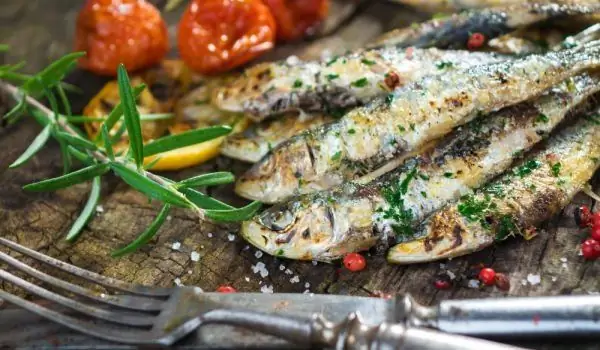2025 Author: Jasmine Walkman | [email protected]. Last modified: 2025-01-23 10:18
Mackerel contains many important vitamins and minerals. This oily sea fish is one of the healthiest choices you can include in your diet.
In this article we will introduce you to the numerous health benefits of consuming mackerel and a complete nutritional profile.
An important source of omega-3 fatty acids
Mackerel contains a significant amount of omega-3 fatty acids. One fillet provides 2991 mg of fatty acids. Per 100 g this is equivalent to 2670 mg of omega-3 fatty acids.
Omega-3 fatty acids have a wide range of health benefits as well as anti-inflammatory mechanisms. Increasing omega-3 intake can improve the cardiovascular system and cognitive health.
It contains significant amounts of vitamin B12
Vitamin B12 is one of the most important nutrients, and its deficiency can cause anemia and damage the nervous system.
For these reasons, it is vital to ensure adequate intake of this vitamin.
Fortunately, mackerel contains a large amount of it, and cooked mackerel fillet provides 279% of the recommended daily intake of vitamin B12. It is essential for the immune and nervous systems and plays an important role in DNA production.
It is rich in protein

Mackerel is an excellent source of dietary protein, with 20.8 g of protein in one fillet. In addition, mackerel contains all nine essential amino acids.
An excellent source of selenium
Just one small mackerel fillet provides 71% of the recommended daily intake of selenium. Selenium is a basic mineral that has many important functions in the human body and includes:
- antioxidant function: helps reduce oxidative stress;
- boosts immunity and plays a key role in the health of the immune system;
- produces DNA;
- regulates thyroid hormones and general thyroid health.
Offers 100% of the recommended daily intake of vitamin D
Some foods are high in vitamin D and mackerel is one of them. In fact, a normal-sized mackerel fillet provides more than 100% of the recommended daily intake of vitamin D.
This vitamin has numerous effects on the body, and according to some studies it has anti-cancer and anti-inflammatory effects.
Nutritional value (per 100 g of mackerel)
Macros
- Calories - 205 kcal

- Carbohydrates - 0 g
- Protein - 18.6 g
- Total fat - 13.9 g
Vitamins (% of the recommended daily intake)
- Vitamin D - 90%
- Vitamin B12 - 145%
- Vitamin B6 - 20%
- Vitamin A - 3%
Minerals (% of recommended daily intake)
- Selenium - 63%
- Phosphorus - 22%
- Magnesium - 19%
- Potassium - 9%
Recommended:
Mackerel - Properties And Health Benefits

In addition to its wonderful taste, mackerel also has many useful properties for the human body. In the places where she lives and is hunted, there are hundreds of ways to prepare it in combination with different products. Few people think about the benefits that this fish has for the body, most appreciate only its taste.
Fruit And Vegetable Juices - Doses, Composition And Benefits

Most people think that home-made natural juices are useful in all quantities or at least harmless. But this is a myth. The same juice can help in some cases, but in others it can be harmful. That is why we must be careful. In some diseases ulcer, gastritis, pancreatitis should not drink acidic juices.
The Black Sea Mackerel And Two Species Of Sturgeon Have Disappeared From The Waters Of Bulgaria

The population of the Black Sea mackerel , which was located on the territory of the Black Sea, is already past. These are the words of the hydrobiologist and ichthyologist Pencho Pandakov, an expert, a member of the Balkanka Association. The hydrobiologist also notes that there is no other than mackerel two species of sturgeon who inhabited the waters of the Danube.
Eat Fresh Sprats For Vitamin A And Horse Mackerel For Vitamin D

Very often, when we are going to cook fish, we go to the nearest grocery store and buy frozen fish. Yes, it is much faster and more convenient! But like most frozen products / fruits, vegetables /, fish is much more useful fresh than in the frozen version.
We Eat Less And Less Native Cheese And More And More Gouda And Cheddar

The sale of white brined cheese in Bulgaria is much lower compared to the consumption in 2006, shows an analysis of the Institute of Agrarian Economics, quoted by the newspaper Trud. Consumption of yellow cheese in our country has also fallen.

